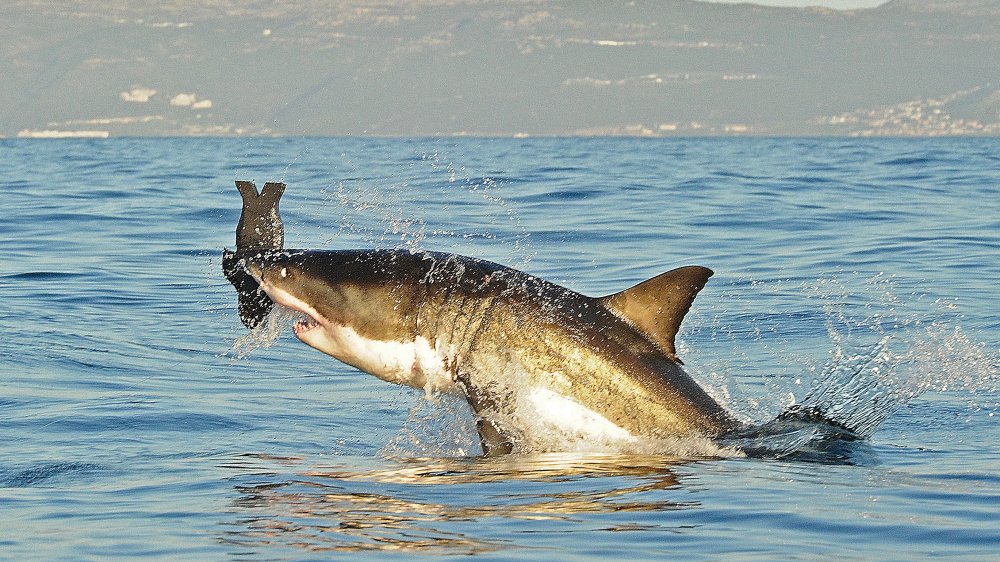The Real Reason Great White Sharks Could Go Extinct
Few creatures in nature can evoke the same fight-or-definitely-flight response as a great white, one of the most dangerous sharks to humans. Between their size, their iconic fins, and the fact that they're basically just malicious torpedoes with mouths full of death, these oceanic night terrors have haunted the dreams of the beach-adjacent for at least as long as big brothers have thought it was funny to sing the Jaws theme song while their siblings tried to learn how to swim.
Perhaps most impressively, they traverse the depths relatively free of natural predators. Not many animals eat sharks, and so, aside from the rare occasion where a couple of orcas have gone all underwater Ghost in the Darkness on them, great white sharks have never warmed up to the idea of being another animal's Lunchable. Adding to that, their habitat can be succinctly categorized as "anywhere that's damp and salty enough." They exist across nearly every corner of the ocean.
All of which makes it seem unthinkable — unthinkable! — that these monsters of the deep might be vulnerable to extinction. What manner of creature could threaten their existence? What beast is more dangerous than the apex predator which dominates some 70% of the Earth?
Man, it turns out, is the shark predator
According to researchers at the University of Swansea, great whites are staring down the barrel of the extinction gun ... and yes, this one's on humans, too. Mostly.
In a paper published by Science Advances titled "Functional diversity of marine megafauna in the Anthropocene," researchers explored different possible extinction scenarios for some of the ocean's largest creatures, as well as how their disappearances might further affect their ecosystems. According to them, "the biggest animals are thought to play crucial ecological roles, and are also facing high levels of threat from human activities such as fisheries and climate change."
Great whites are some of the most vulnerable creatures in the ocean, when it comes to hunting and immediate changes in the environment. Like many gargantuan animals, they take ages to reach sexual maturity, with estimates published by Live Science in the neighborhood of 25 to 30 years. Add to that a 12-to-18 month gestation period, and any wide-ranging population collapse would be difficult to reverse.

